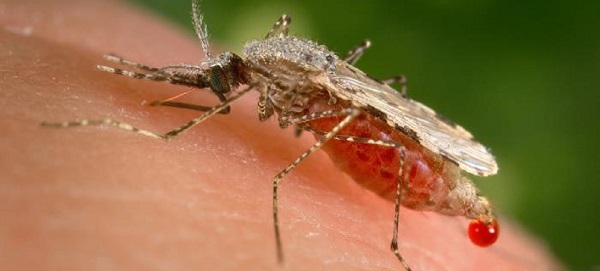
In a renewed effort to eradicate malaria in Nigeria, the Federal Government has enlisted the support of some of the nation’s most prominent business leaders.
Among those leading the charge are chairman of Dangote Group Aliko Dangote; chairman of Heirs Holdings, Tony Elumelu and chairman of Geregu Power Plc, Femi Otedola.
Minister of State for Health and Social Welfare, Dr. Tunji Alausa officially inaugurated the Nigeria End Malaria Council on Friday in Abuja. He emphasised the vital role these industry heavyweights, alongside the Nigerian Governors’ Forum (NGF), the National Assembly’s joint health committees and women’s organisations, will play in the fight against malaria. The council is tasked with reducing and potentially eliminating the malaria scourge in Nigeria.
Alausa underscored the urgency of addressing malaria, which led to the establishment of the council. “The prevalence of malaria in our country makes it urgently expedient to explore every option available to address it,” he said.
He recalled that the Nigeria End Malaria Council was established in 2017 and was inaugurated by former President Muhammadu Buhari on August 16, 2022. “The council’s primary objectives are to keep malaria high on national and state agendas, secure strong political commitment from leaders, and mobilise resources, particularly from the private sector, to close resource gaps in the national malaria strategic plan,” he explained. However, following its 2022 inauguration, the council faced challenges, including a change in government, which delayed its activities, though the secretariat remained functional.
Alausa highlighted the urgency of the council’s mission with alarming statistics: Nigeria contributes over a quarter of global malaria cases and about a third of the more than 600,000 malaria deaths worldwide, with children and pregnant women being the most affected. “It is disheartening that malaria contributes to about 25-30 per cent of childhood mortality and about 60 per cent of hospital attendance in Nigeria,” he noted. “Furthermore, malaria is a significant cause of absenteeism in schools, markets, and workplaces, and it places a considerable financial burden on households across the country.”
He also mentioned Nigeria’s recent involvement in the Ministerial Conference on Malaria in Yaoundé, Cameroon, where the country, alongside 10 other high-burden nations, signed a declaration to scale up interventions against malaria. This was followed by the “Rethinking Malaria Elimination in Nigeria” roundtable discussion in Abuja, which brought together key stakeholders and global experts to identify challenges and strategise on malaria elimination.
Emphasizing the enormity of the challenge, Alausa lamented, “Nigeria’s population exceeds 200 million, and the entire population is at risk of malaria. This situation poses a huge challenge to the government and necessitates a different approach to tackling the disease.” While current interventions, such as antimalarial medicines, insecticide-treated nets and insecticides, are essential, he acknowledged that they are not sufficient. Moreover, much of the support for these interventions comes from donors, which is neither adequate nor sustainable. He referenced the African Leaders Malaria Alliance (ALMA), launched in 2009 and the Malaria Scorecard developed in 2011 to monitor country performance, noting that “No country has ever eliminated malaria through donor support alone.”
In officially handing over the leadership of the council to Dangote, who has served as Nigeria’s Malaria Ambassador and is a member of the Global End Malaria Council, Alausa expressed confidence in the newly inaugurated council members. He outlined the council’s critical role, stating, “The major objective of this body is to contribute to a reduction in the malaria burden and, if possible, eliminate malaria in Nigeria, ultimately leading to an improvement in the quality of life for all Nigerians. By virtue of your positions in Nigeria, your passion for health issues, particularly malaria, and the interest groups you represent, your membership in this council is crucial for the benefit of the larger society, especially children and pregnant women, who are the most affected and would remain forever grateful.”
The Nigeria End Malaria Council Secretariat, led by its executive secretary, Ope Abegunde was also formally handed over to the council, signaling the government’s commitment to making malaria history in Nigeria.
At the council’s inaugural meeting, Aliko Dangote urged members to tackle malaria head-on. He highlighted the council’s collective strength across government, civil society, religion, and business, noting their unique ability to mobilise resources for the national malaria programme. Dangote outlined the council’s primary objectives, emphasising the need to keep malaria elimination high on Nigeria’s agenda, secure strong political commitment from leaders at all levels, and advocate for sufficient funding at both national and state levels. He called on the council to protect the progress made so far, sustain it and ensure that Nigeria is on an irreversible path to ending malaria for good.
“I want to thank you all for accepting to serve our beloved country in this capacity and I am glad to join hands with you to reduce the burden and deaths caused by malaria in Nigeria,” Dangote said.
According to Science Nigeria, the council members are committed to mobilising the funds needed to ensure malaria is eliminated in the country.

